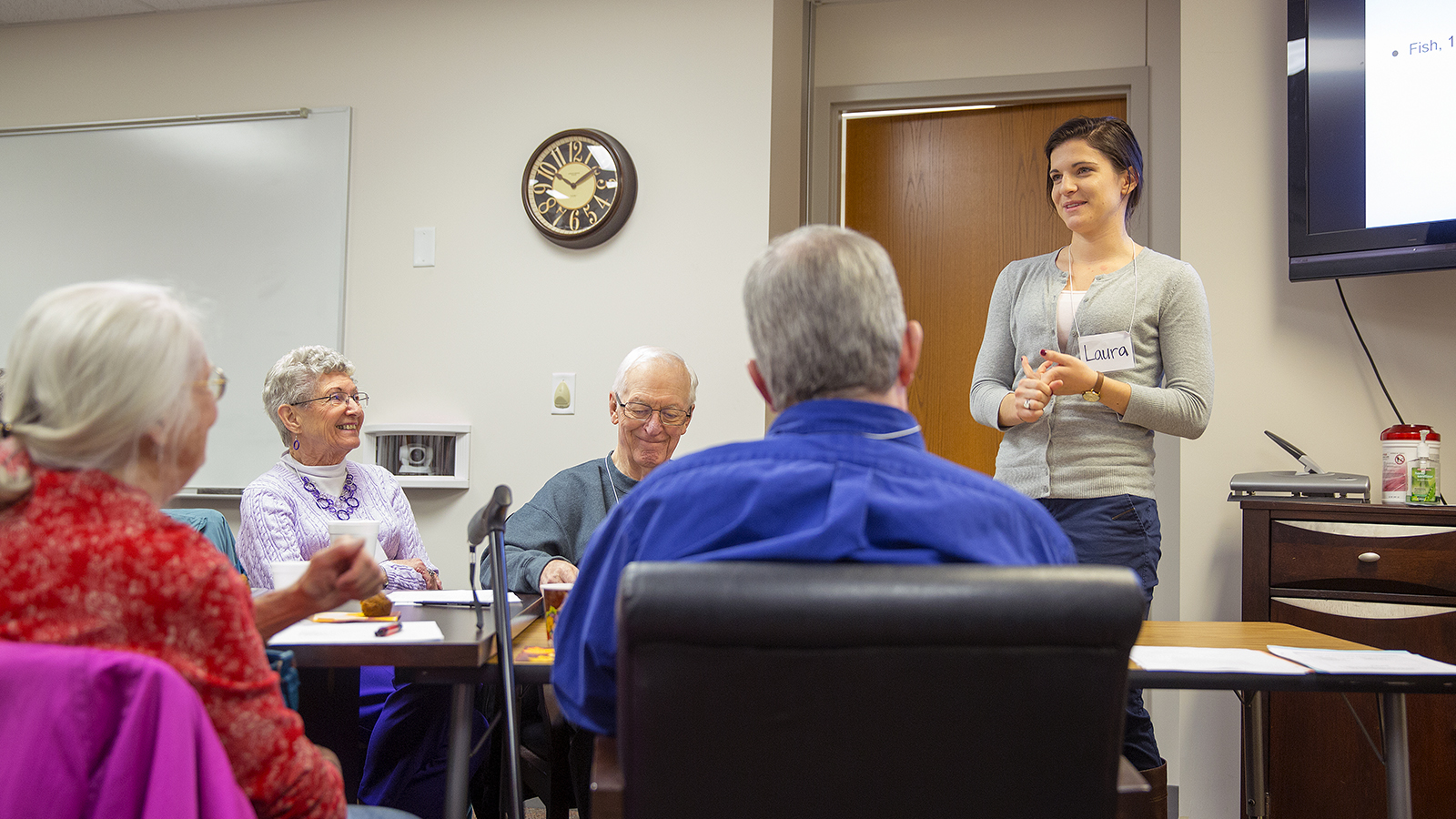
Barkley Clinic partners with Tabitha to provide memory workshop
15 Jun 2018 By Kelcey Buck
A few years ago, Judy Harvey attended the annual American Speech-Language-Hearing Association (ASHA) convention and returned to Lincoln inspired to help adults develop strategies to maintain sharp memories as they age.
At the convention, Harvey attended a presentation by Michelle Bourgeois, a professor in the Department of Communication Sciences and Disorders at the University of South Florida, where she discussed a memory workshop she had conducted targeting adults with mild cognitive impairment.
“I thought it made a lot of sense,” said Harvey, an assistant professor of practice in Nebraska's Department of Special Education and Communications Disorders. “It talked about educating people as sort of an early intervention approach. People usually think of early intervention for children, but we’re thinking of it in terms of the entire lifespan.”
After the convention was over, Harvey saw one of her former colleagues at the airport. Abbe Davis, a speech-language pathologist at Tabitha, had also been at the presentation by Bourgeois and was equally inspired to start a memory workshop in Lincoln. The two began working together to make it happen, and the first UNL-Tabitha Memory Workshop was held in the fall of 2014.
“It originally started as a workshop for people who had diagnosed memory loss,” Harvey said. “But, as we started going to retirement communities, calling doctor’s office and collaborating with Osher Lifelong Learning Institute (OLLI) to recruit participants, we found that normally aging people wanted to be involved. So, we opened it up and now we invite people who have diagnosed early stages of memory loss, as well as people who are just really interested in learning about memory and aging. Our message is there are things you can do now to live and be independent as long as you can.”
The memory workshop is an eight-week program lead by Harvey, Davis and master’s students in the University of Nebraska-Lincoln’s speech-language pathology program each semester and summer. Week one consists of an overview and education about memory. Weeks two through eight each feature one topic, typically a memory strategy.
“We’re hoping to send them out into the world with strategies so they don’t need to repeat the workshop,” Harvey explained. “But we paste our names and phone numbers all over so they can call us. This is a population at-risk to maybe not notice the signs or fearfully brush them under the rug, so we want them to call us and come back to us if they feel like they need some help.”
The workshop costs $80 per person, which includes the participant bringing a significant other, family member or friend along for free. Each eight-week session is limited to a total of 16 people in order to keep it personalized and encourage discussion and interaction.
This year, Harvey received a grant from the UNL Research Council to support research she has also initiated with the Memory Workshop. The grant allows for participants to be reimbursed if they are willing to be tested before and after the eight-week workshop, attend all eight sessions, and return for follow-up testing three, six and 12 months after the workshop. The first round of three-month follow-ups will take place at the end of the summer. Harvey said this testing will help her learn more about the long-term impact of the memory strategies taught in the workshop.
“So far, on the measurement we use, it looks like the workshop gives people more confidence in their skills and they report increased use of strategies immediately following attendance. What we don’t know yet is how long that lasts and if it makes a functional impact. That’s what we are studying.”
Since its inception, 97 individuals have completed the UNL-Tabitha Memory Workshop. Thirteen more are currently enrolled in the summer session that began June 6. The fall workshop begins Sept. 5. Visit the UNL-Tabitha Memory Workshop webpage to learn more.
Special Education and Communication Disorders